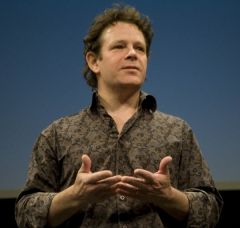- Author, "How to Change the World"
David Bornstein specializes in writing about social innovation. His newest book, Social Entrepreneurship: What Everyone Needs to Know (written with Susan Davis and just published this month), offers an overview of the field and explores where it may... More
David Bornstein specializes in writing about social innovation. His newest book, Social Entrepreneurship: What Everyone Needs to Know (written with Susan Davis and just published this month), offers an overview of the field and explores where it may be heading. David is also the author of How to Change the World: Social Entrepreneurs and the Power of New Ideas, which was described by The New York Times as “must reading” for “anyone who cares about building a more equitable and stable world.”
He also recently launched Dowser.org, a site dedicated to covering social innovation. Bornstein grew up in Montreal and now lives in New York City with his wife and son.
David Bornstein's Presentations
| Gel 2010 | April 2010 |
Watch videoNew projects changing the world: David tells how studying the Grameen Bank, an early case study, led him to a larger exploration of social entrepreneurship - culminating in several examples of great projects going on today. New projects changing the world: David tells how studying the Grameen Bank, an early case study, led him to a larger exploration of social entrepreneurship - culminating in several examples of great projects going on today. |
| Poptech 2004 | October 2004 |
New projects in Brazil and India: David Bornstein talks about a project to bring electricity to poor people in Brazil: single wires going to houses, grounded in the soil, low voltages. The project is also bringing solar panels to rural areas, renting... More New projects in Brazil and India: David Bornstein talks about a project to bring electricity to poor people in Brazil: single wires going to houses, grounded in the soil, low voltages. The project is also bringing solar panels to rural areas, renting them for what people generally pay for candles, kerosene, etc. He also talks about "child line" in India, now in 55 cities. It's a number you can call if you see a child in distress. |

Share